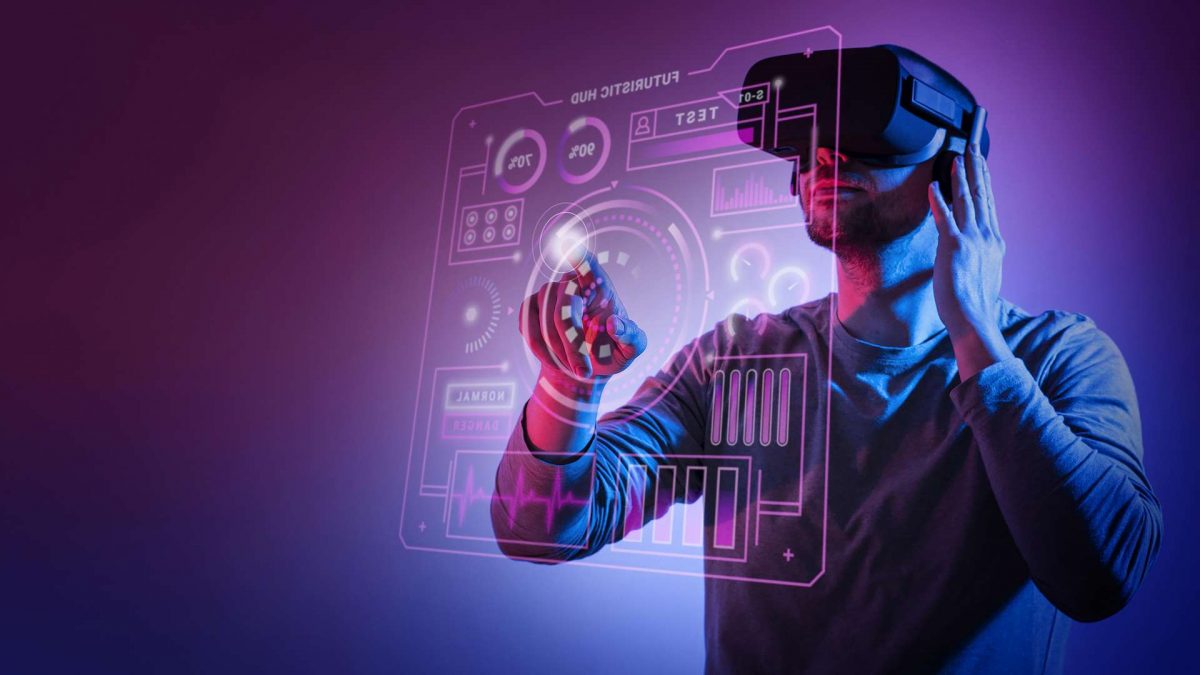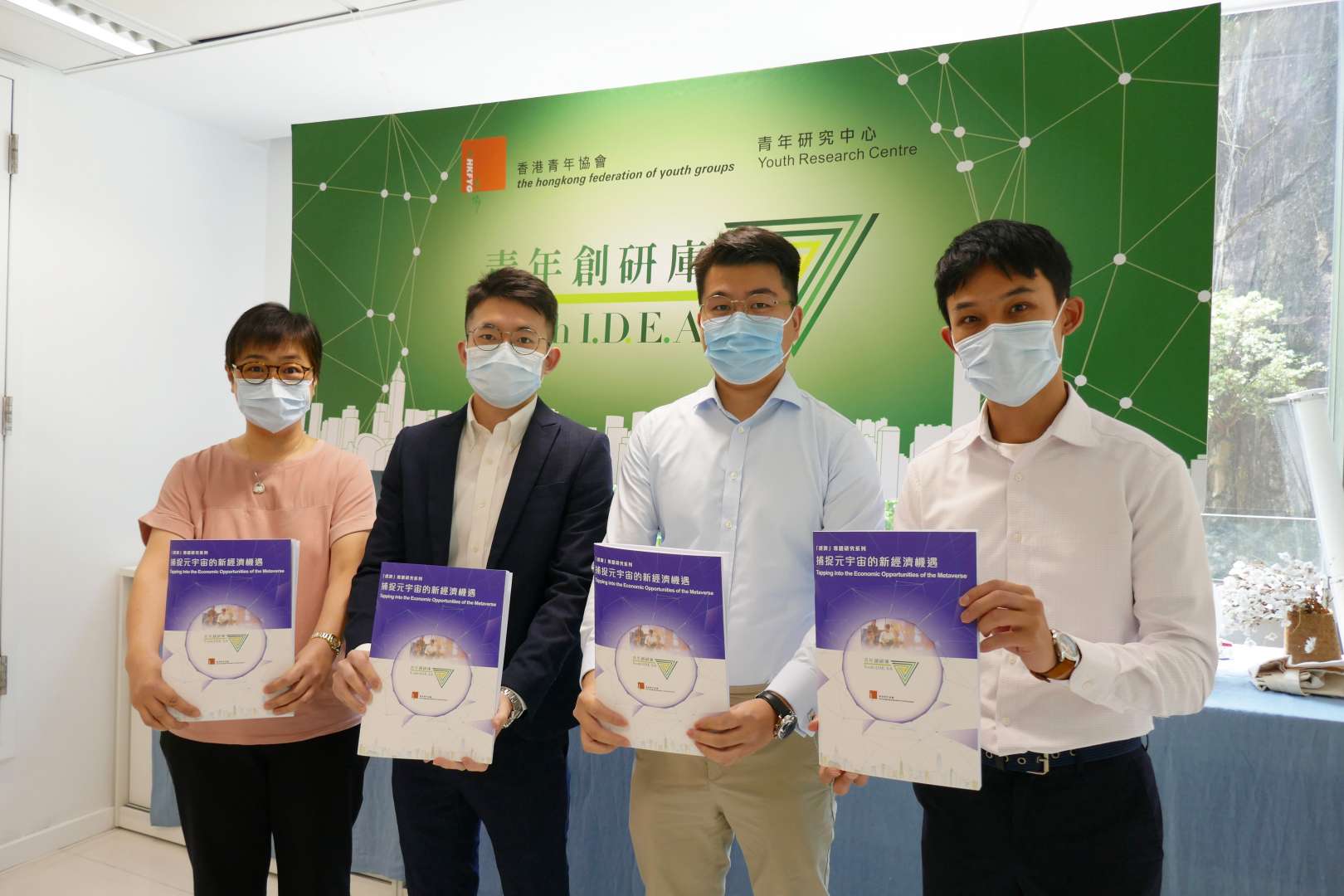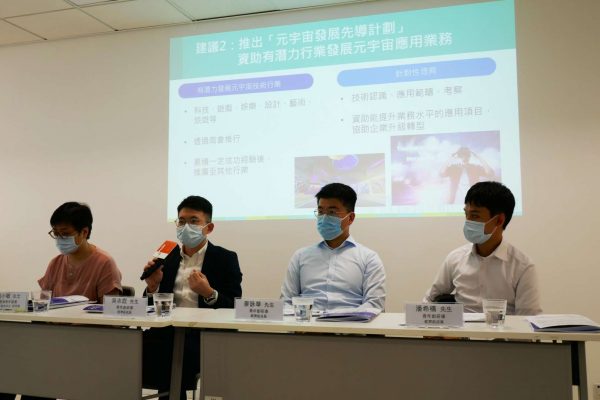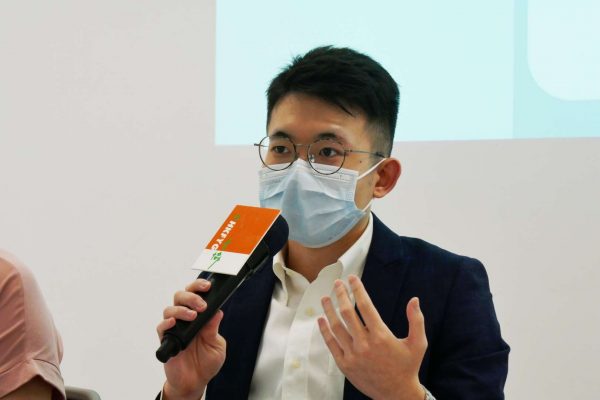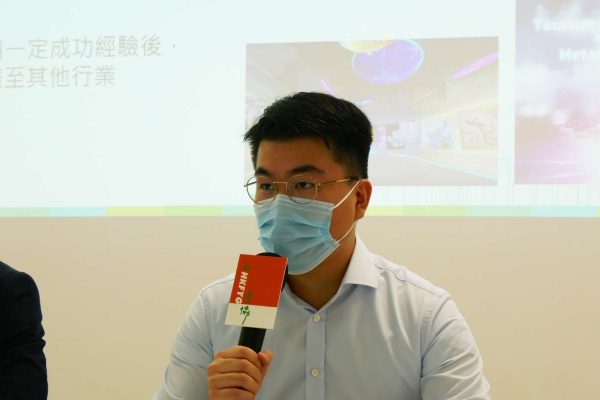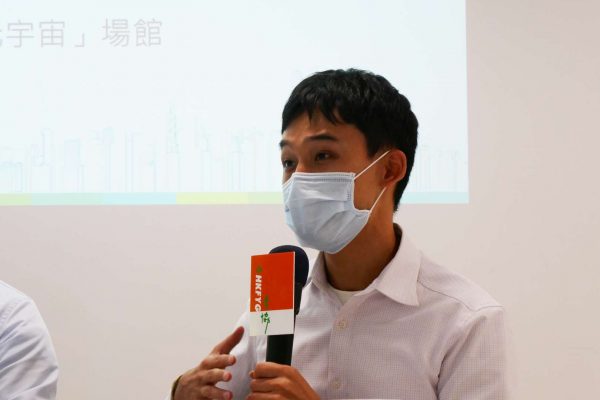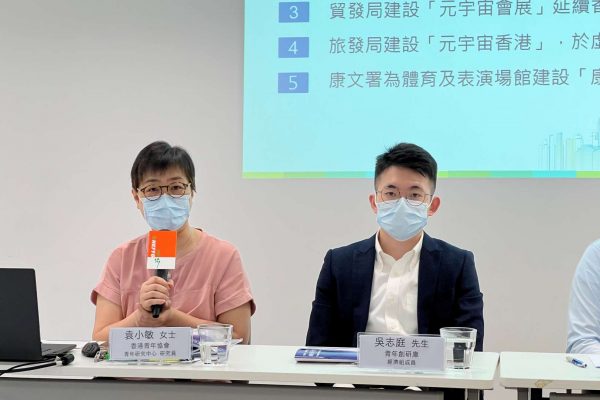Tapping into the Economic Opportunities of the Metaverse
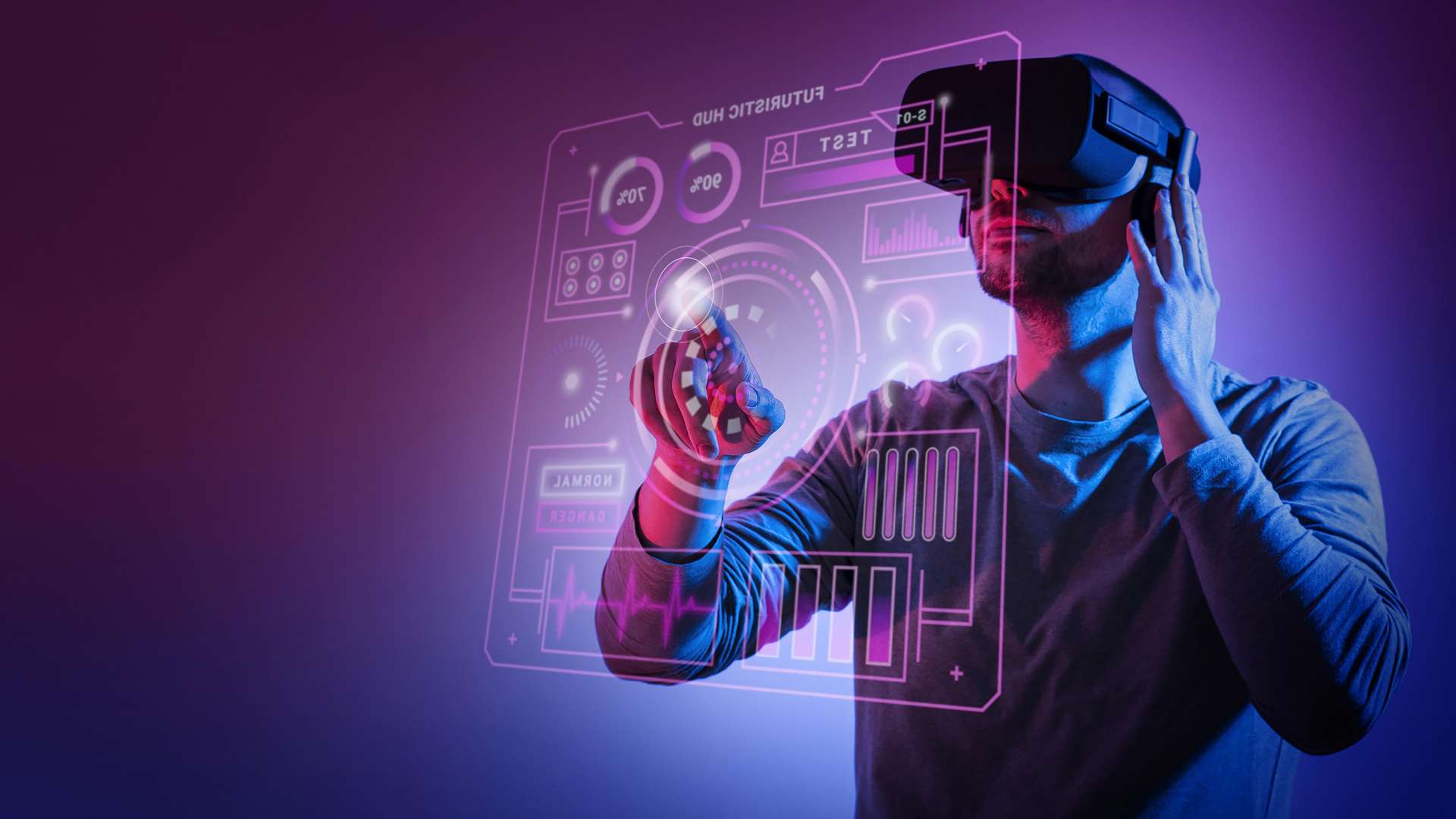
Youth I.D.E.A.S. 70
Economic Development
Tapping into the Economic Opportunities of the Metaverse
The concept of the virtual “Metaverse” world has become popular since 2021. It is considered a new economy trend worthy of universal attention.[1] The Metaverse generally refers to a network of 3D virtual worlds focused on social connection. People in the real world can enter these artificial worlds with an avatar by using virtual-reality and augmented-reality headsets, mobile phones, personal computers and video game consoles. The Metaverse can also be understood as a huge application of various off-the-shelf technologies such as blockchain, artificial intelligence, virtual reality (VR), augmented reality (AR), machine vision, and so on.[2]
The infrastructural technology that drives the Metaverse is Web 3.0, the third generation of the Internet, which is a decentralized network based on blockchain technology. Users can obtain returns from the content they contribute in addition to retaining its ownership. They clearly know and can decide the usage of their private data.[3]
Because of the technological characteristics of Web 3.0, the Metaverse generates a lot of business opportunities. According to Bloomberg, the Metaverse market may reach $783.3 billion in 2024, up from $478.7 billion in 2020, representing an annual growth rate of 13.1%.[4] Aside from this, Metaverse technology may help in the upgrading of various industries such as healthcare, finance, education, retail, business services, and so on, thereby involving many economic activities and forming the “Metaverse economy”. According to a J. P. Morgan report, the market opportunity involved in the Metaverse across various industries is estimated to be US$1 trillion per year.[5]
A number of governments of different regions have already introduced relevant policies to support the development of the Metaverse. For instance, the Seoul government of Korea has introduced the “Basic Plan for Metaverse Seoul” which covers seven areas of development including economy, education, tourism, communication, city, administration and infrastructure.[6] In the U.S., the government has started to formulate policies related to cryptocurrency and digital assets with an aim to maintaining technological leadership in central bank digital currency.[7] Many regions in Mainland China have also issued planning documents to support the development of relevant technologies. They are also planning to increase its application in public services and businesses.[8]
In Hong Kong, although the Metaverse can provide a lot of potential economic and employment opportunities, the government still needs to explore the best policy direction towards Metaverse technology and how enterprises and young people can prepare for the Metaverse economy so that the society is able to tap into these opportunities.
This study carries out an online survey to understand young people’s knowledge, views and experience of the Metaverse, as well as their level of demand for it. Through in-depth interviews with experts, scholars, relevant enterprises and workers, this study also attempts to understand the overall development environment of the Metaverse, its business and employment opportunities, interviewees’ attitudes towards the Metaverse economy, and the development problems involved. By synthesising all of the information collected, this study aims to make feasible recommendations on the strategies and specific measures that Hong Kong should take in order to broaden the overall economy and youth career development opportunities.
This study uses data collected through three methods during the period from April to May 2022: an online survey of 1,292 HKFYG members aged 15–34, case interviews with 20 business founders or employees whose jobs are Metaverse-related, and interviews with seven experts and scholars.
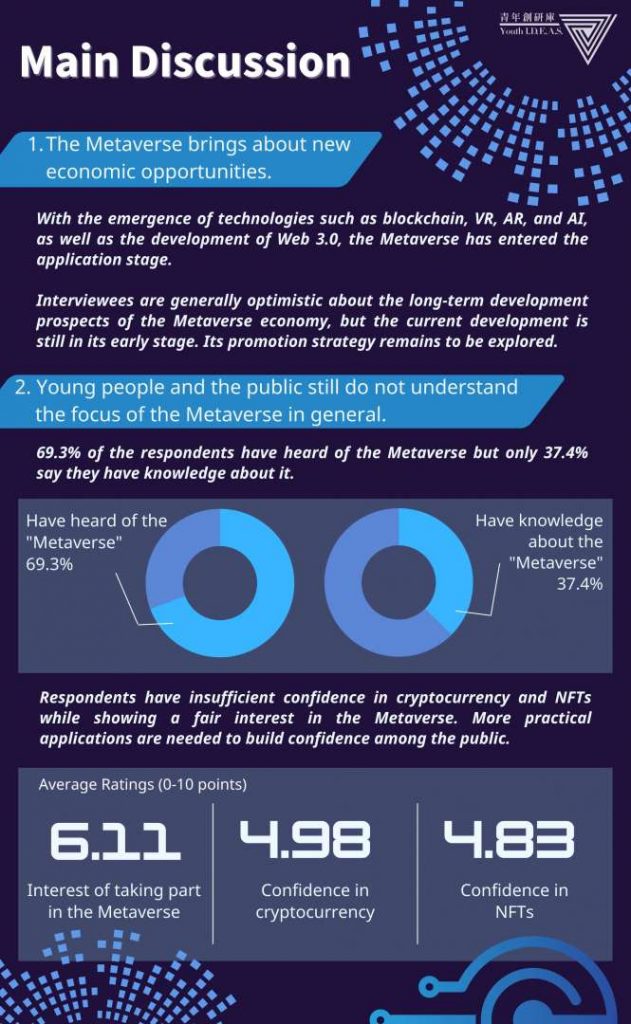
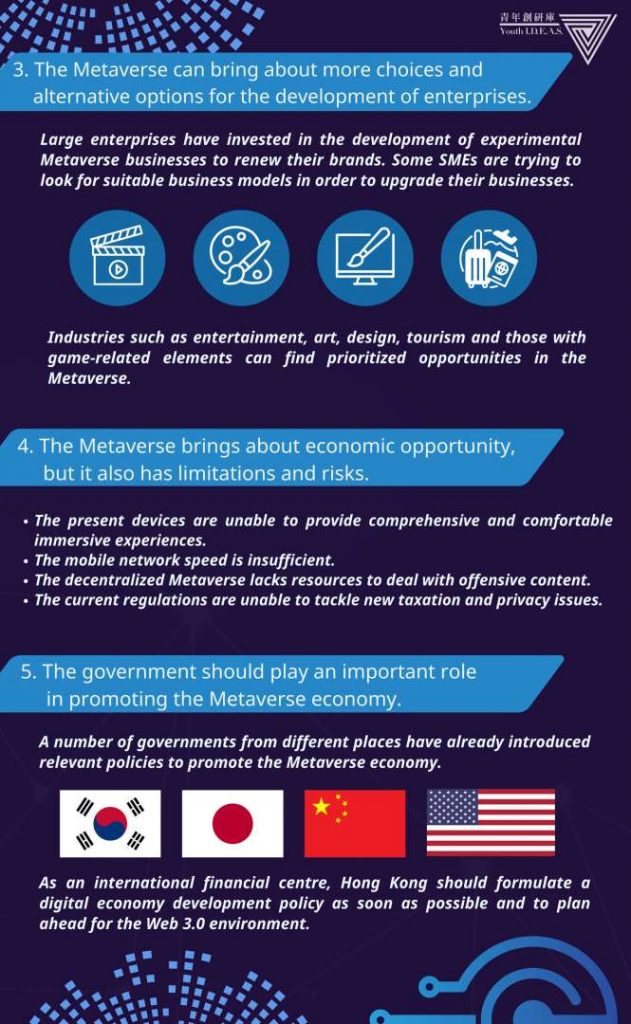
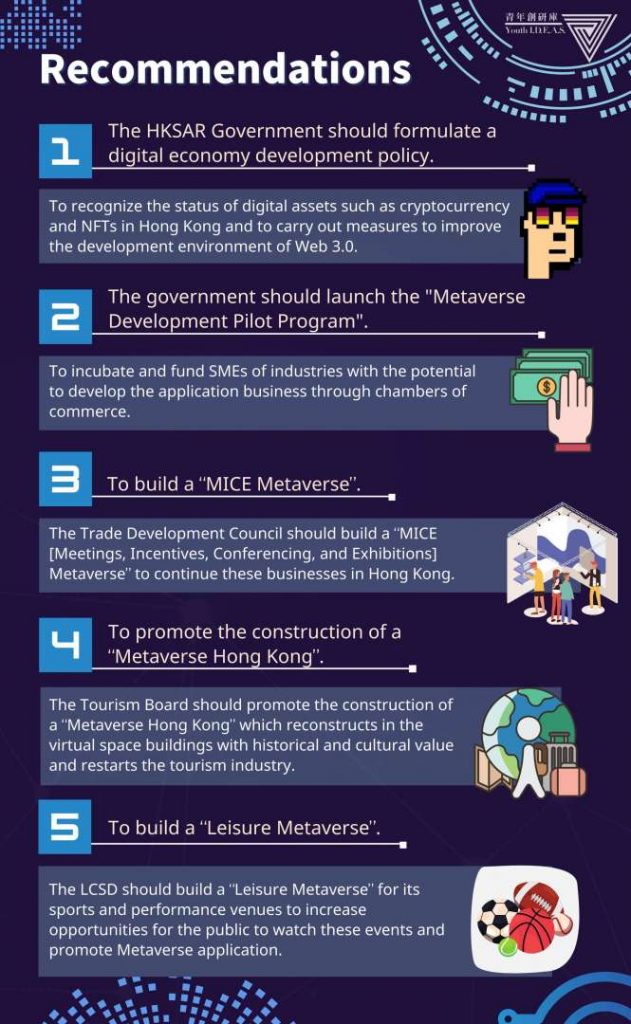
[1] PWC. (2021). Demystifying the Metaverse. Retrieved February 15, 2022, from https://www.pwc.com/us/en/tech-effect/emerging-tech/demystifying-the-Metaverse.html
[2] Wikipedia. (2021). “Metaverse.” Retrieved May 16, 2022 from https://zh.wikipedia.org/wiki/ [in Chinese]
[3] Preface. (2022). “What is Web 3.0?” Retrieved July 6, 2022 from https://www.preface.ai/blog/trend/第三代互聯網-web3-0/ [in Chinese]
[4] Bloomberg Intelligence. (December 1, 2021). “Metaverse may be $800 billion market, next tech platform.” Retrieved February 14, 2022, from https://www.bloomberg.com/professional/blog/Metaverse-may-be-800-billion-market-next-tech-platform/
[5] J. P. Morgan. (2022). Opportunities in the Metaverse. Retrieved February 22, 2022, from https://www.jpmorgan.com/content/dam/jpm/treasury-services/documents/opportunities-in-the-Metaverse.pdf
[6] Seoul Metropolitan Government. (2022a, January 7). “Seoul to provide public services through its own Metaverse platform.” Press release. Retrieved June 20, 2022, from https://english.seoul.go.kr/seoul-to-provide-public-services-through-its-own-Metaverse-platform/
[7] Chen, X. (2022, March 10). “Biden signed first US Digital Asset Scheme Inspired the Crypto Community.” Retrieved July 8, 2022, from https://www.ithome.com.tw/news/149824 [in Chinese]
[8] Tencent. (2021). “Notice of ‘The 14th Five-Year Plan for the Development of Shanghai Electronic Information Industry.’” Retrieved June 20, 2022, from https://new.qq.com/omn/20211230/20211230A0BX4K00.html [in Chinese]
Publication
- Executive Summary
- Report PowerPoint (Chinese only)
- Full Report (Chinese only)
- Press Release (Chinese only)
Photos


